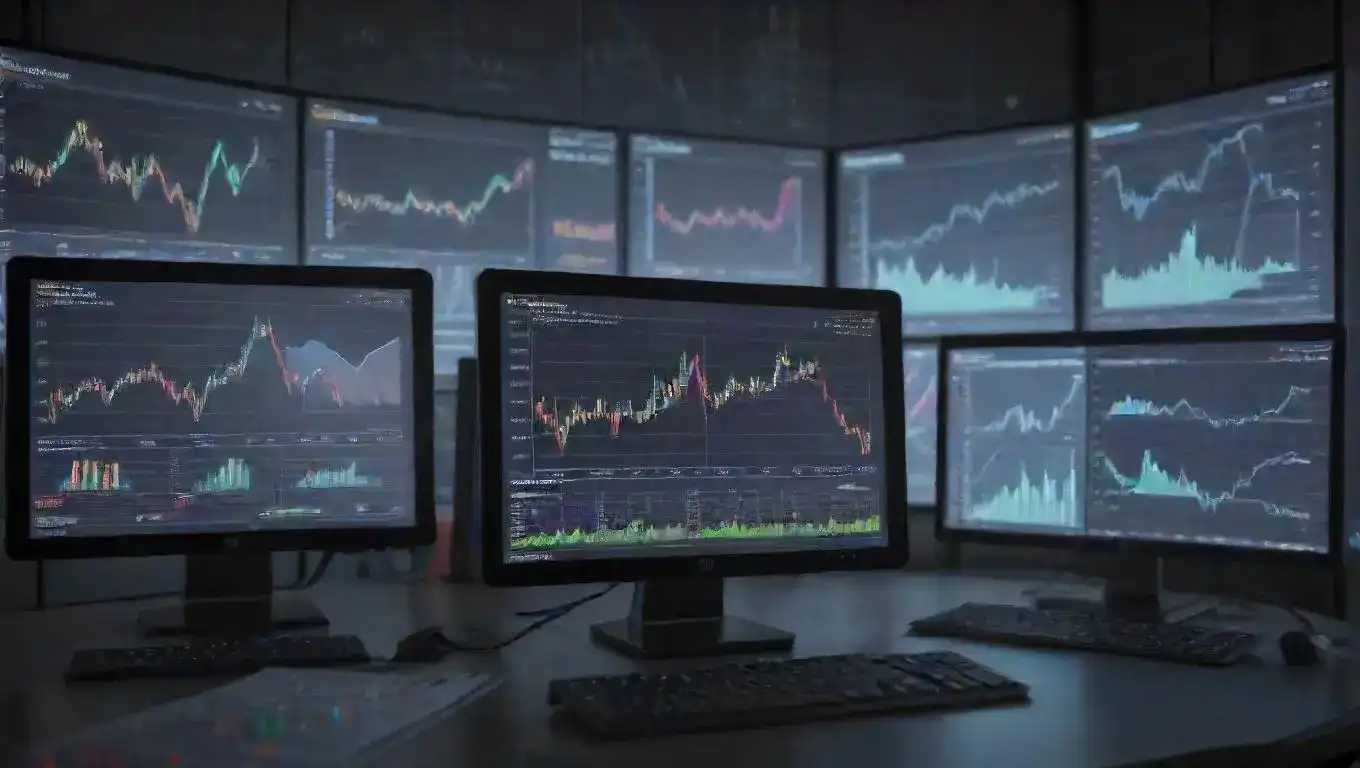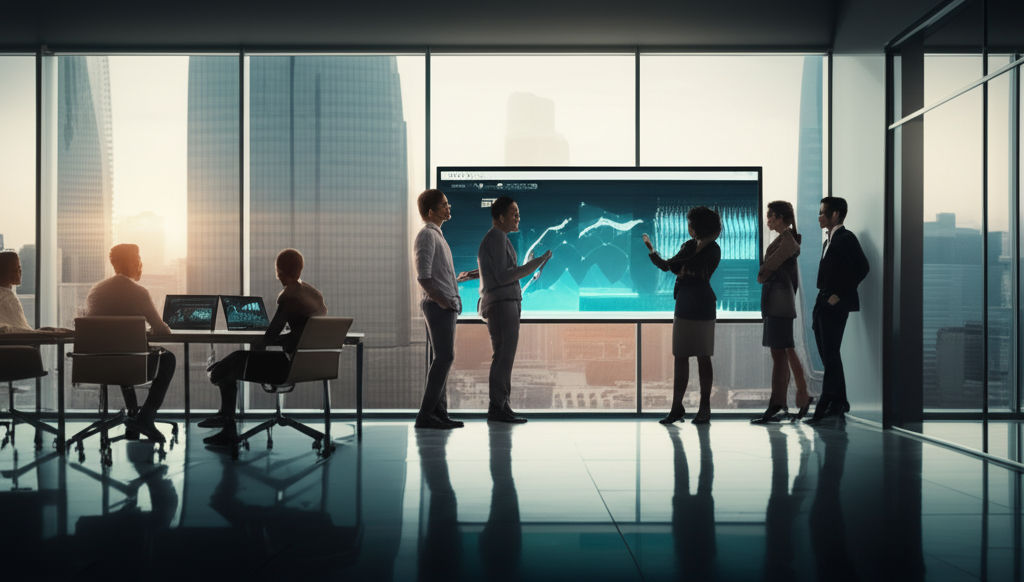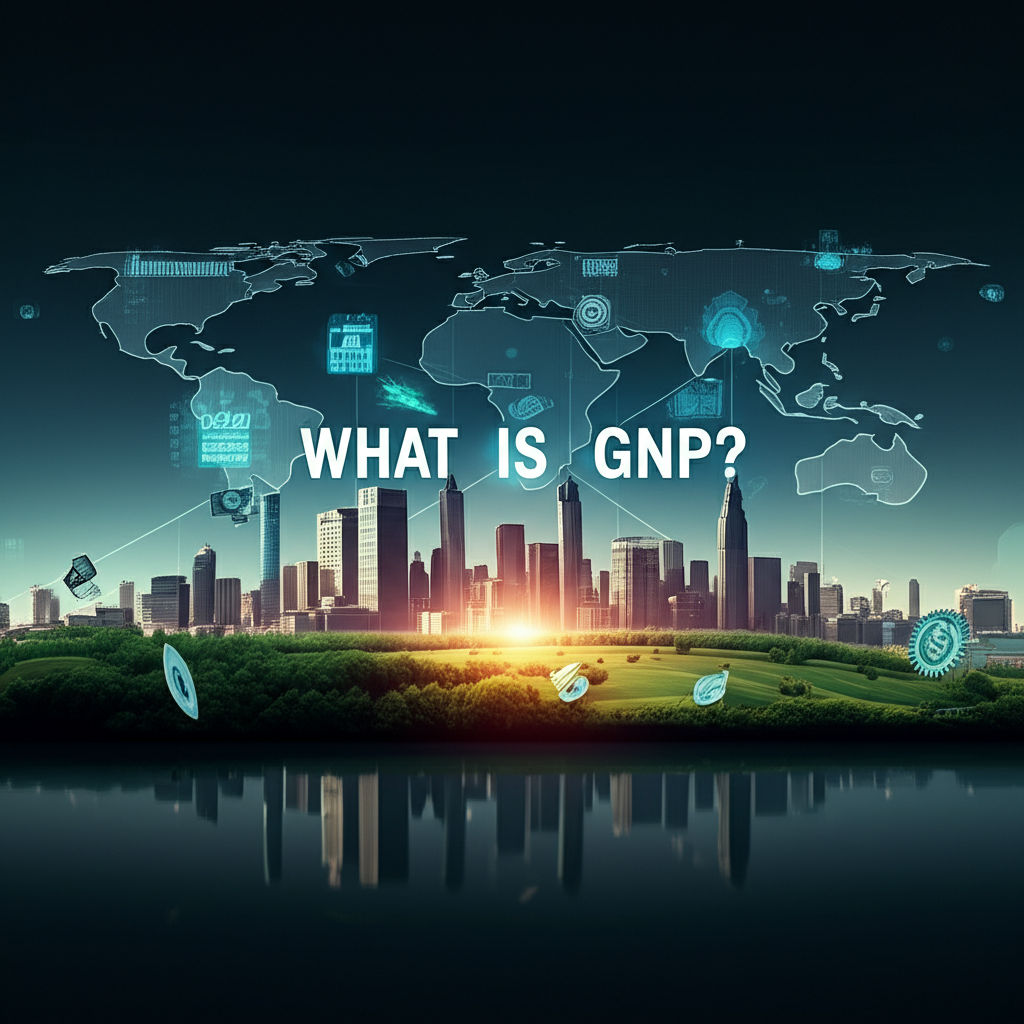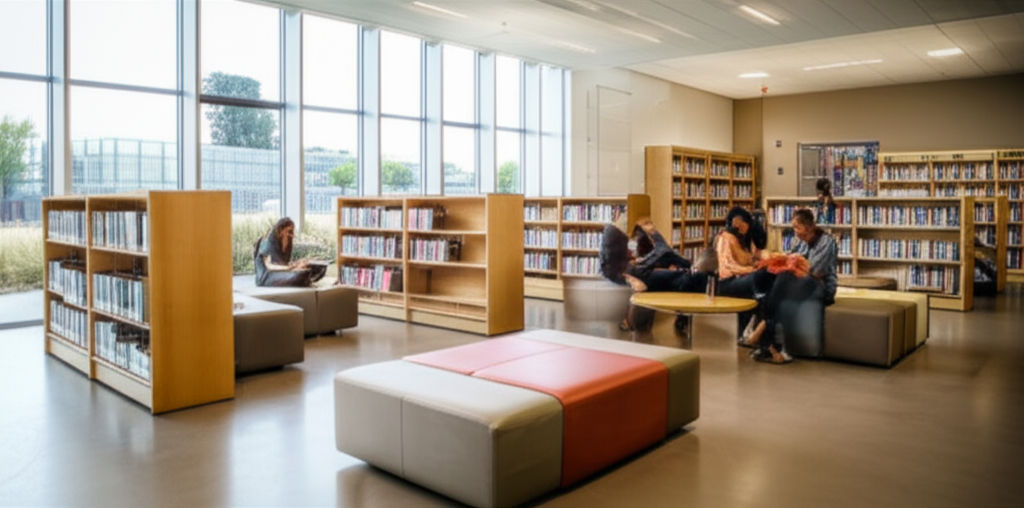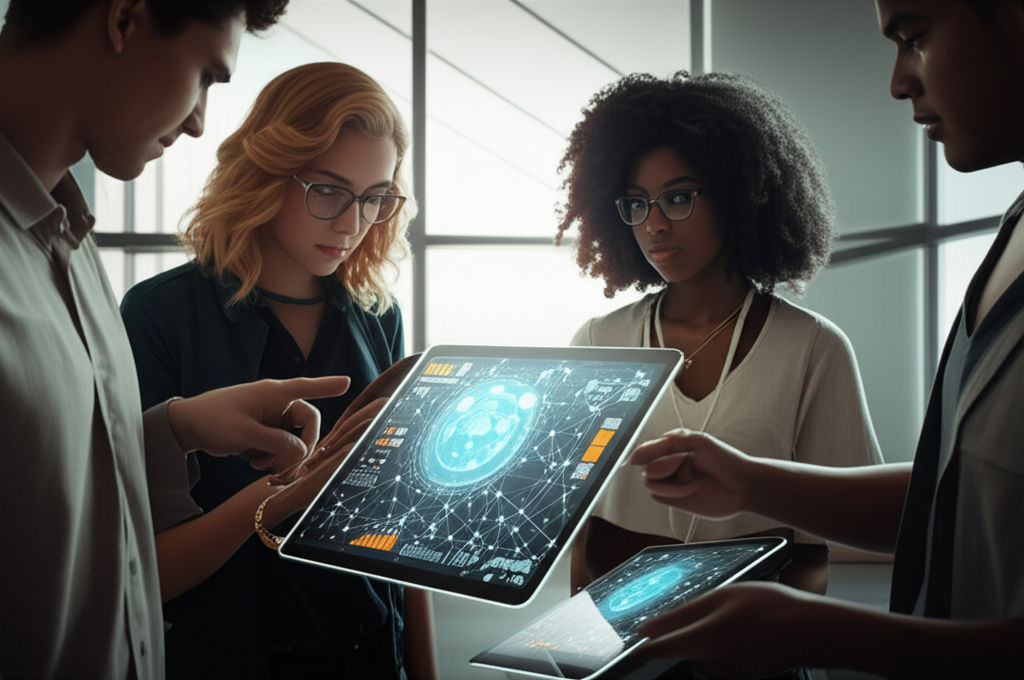Future Libraries: From Books to Digital Hubs
Emily Willis
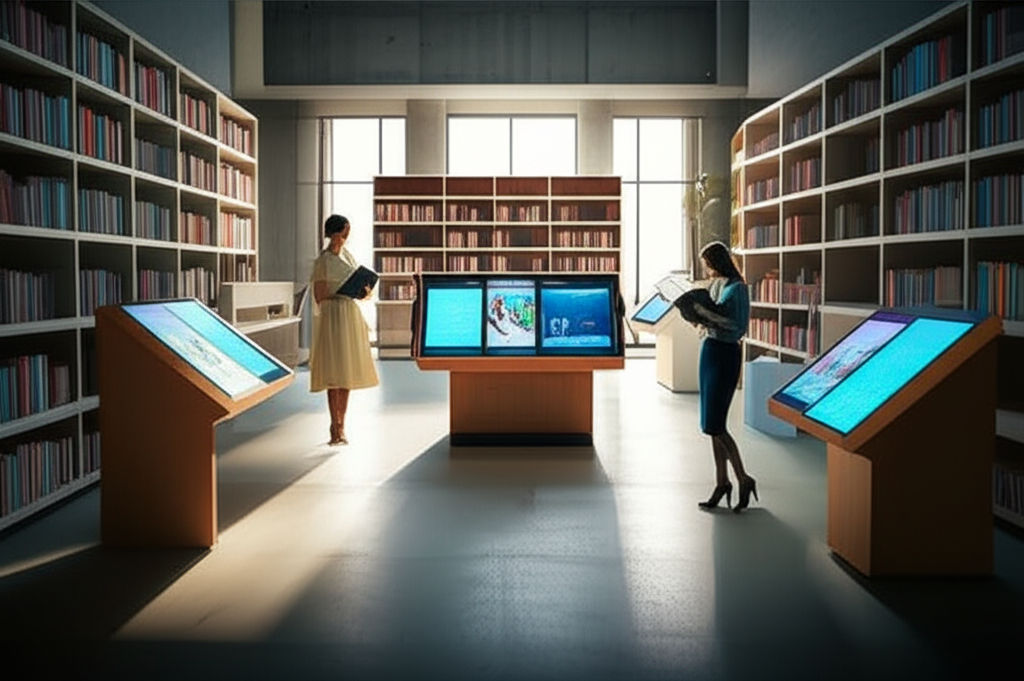
Photo: Future Libraries: From Books to Digital Hubs
The library of today, and certainly of tomorrow, is a far cry from the hushed, book-lined halls many of us remember from childhood. While the comforting scent of old paper and the quiet turning of pages will always hold a special place in our hearts, libraries are undergoing a profound and exciting transformation. They are evolving from mere repositories of books into vibrant, dynamic digital hubs and essential community learning centers. This evolution is not just about keeping up with the times; it's about ensuring that libraries remain vital, accessible, and empowering spaces for everyone in the digital age.
The Library We Knew: A Nostalgic Look Back
For generations, the traditional library stood as a sanctuary of knowledge. It was a place where you could find almost any book imaginable, from classic literature to academic texts, all meticulously organized on towering shelves. The primary focus was on physical collections – borrowing books, referencing encyclopedias, and quiet study. Librarians were often seen as the guardians of these vast collections, experts at guiding you to the right printed volume. These libraries were invaluable for research, leisure reading, and providing a quiet space for contemplation.
Why Libraries Must Evolve: The Digital Revolution and Beyond
The advent of the internet and the rapid acceleration of digital technology have fundamentally reshaped how we access information and connect with the world. This digital revolution presented both a challenge and an immense opportunity for libraries. With information instantly available online, some wondered if libraries would become obsolete. However, instead of fading away, libraries have embraced this shift, recognizing that their core mission – to provide free and equitable access to information and foster lifelong learning – is more crucial than ever.
The need for libraries to evolve stems from several key factors:
- Changing Information Consumption: People now consume information in diverse formats, from e-books and audiobooks to online articles, videos, and interactive media.
- The Digital Divide: Despite widespread internet access, a significant portion of the population still lacks reliable home internet, devices, or the skills to navigate the digital world effectively. Libraries are uniquely positioned to bridge this gap.
- Community Needs: Modern communities require more than just book lending. They need spaces for collaboration, skill development, social connection, and access to technologies that might otherwise be out of reach.
Future Libraries: More Than Just Books – The Rise of Digital Hubs
Today's modern libraries are actively redefining their role, transforming into dynamic digital hubs that offer a wealth of resources and services far beyond books. They are becoming vibrant centers for learning, creativity, and community engagement.
Embracing Digital Resources
One of the most visible shifts is the expansion of digital collections. Future libraries offer extensive access to:
- E-books and Audiobooks: Patrons can borrow digital titles instantly from platforms like OverDrive and Libby, accessible on their personal devices anytime, anywhere. This has democratized access to information, especially for those who might have difficulty visiting a library physically.
- Online Databases and Journals: Libraries provide free access to specialized databases, research tools, and academic journals that would otherwise require expensive subscriptions. This is invaluable for students, researchers, job seekers, and small business owners.
- Streaming Services: Many libraries now offer access to educational and entertainment streaming services, expanding their multimedia offerings.
- Digital Archives and Multimedia Content: From historical documents to local media, libraries are digitizing and preserving vast amounts of information, making it accessible to a global audience.
The Library as a Community Learning Center
Beyond digital content, evolving libraries are becoming bustling centers for hands-on learning and skill development, serving as true community learning centers. They offer a diverse range of programs and facilities:
- Makerspaces and Innovation Labs: These creative environments are a staple in modern libraries, providing access to cutting-edge tools and technologies like 3D printers, laser cutters, sewing machines, virtual reality (VR) equipment, and robotics kits. They encourage creativity, innovation, and problem-solving, allowing users to prototype designs, learn new skills, and collaborate on projects. Examples include the Chattanooga Public Library and the Chicago Public Library's “YOUmedia” program for teens.
- Educational and Skill-Building Workshops: Libraries host workshops on a vast array of topics, from basic computer skills and online safety to coding boot camps, graphic design, resume writing, and financial literacy seminars. These programs cater to all ages, from children learning STEM concepts to seniors staying tech-savvy.
- Collaborative Workspaces: With the rise of remote work and online learning, libraries are providing modern co-working spaces, quiet study pods, and meeting rooms equipped with high-speed internet. Some even offer access to expensive software like Adobe Creative Suite.
Bridging the Digital Divide
A critical role of future libraries is to address the digital divide, ensuring that everyone has access to technology and the skills to use it.
- Free Internet and Computer Access: Libraries continue to be a primary source of free Wi-Fi and computer terminals for individuals who lack reliable internet access at home. Some libraries even lend out Wi-Fi hotspots and laptops.
- Digital Literacy Training: Librarians are at the forefront of promoting digital literacy, teaching patrons how to navigate online resources, use search engines effectively, identify credible information, and understand cybersecurity. Programs like the Toronto Public Library's Digital Innovation Hubs provide free access to technology and training.
- Tech Support: Many libraries offer one-on-one assistance to help patrons with everything from setting up email accounts and downloading e-books to troubleshooting device issues.
Curators of Information in the Age of Misinformation
In an era of overwhelming information and rampant misinformation, librarians play an increasingly vital role as trusted guides and information curators. They help patrons:
- Evaluate Credibility: Teaching critical thinking skills to discern reliable sources from unreliable ones online.
- Navigate Vast Information: Guiding users through the immense volume of online data to find relevant and accurate resources.
- Promote Media Literacy: Equipping individuals with the skills to understand and analyze various forms of media.
Flexible Spaces for Modern Needs
The physical design of modern libraries is also transforming. Large stacks of books are giving way to more flexible, multi-purpose spaces designed to foster interaction, learning, and community.
- Open Layouts: Creating inviting environments with comfortable seating and adaptable areas.
- Meeting Rooms and Event Venues: Providing spaces for community groups, workshops, author talks, art exhibitions, and cultural events.
- Social and Collaborative Zones: Encouraging group work, discussions, and hands-on activities, promoting creativity and innovation.
Practical Steps for Engaging with Your Future Library
Ready to explore what your local library has to offer? Engaging with these evolving library services is easier than you think!
- Visit Your Local Branch: Even if you haven't been in years, stop by and see the changes. Many libraries have undergone significant renovations.
- Explore Their Website: Most public libraries have comprehensive websites detailing their digital resources, event calendars, and workshop schedules. This is often the best place to start your exploration.
- Get a Library Card (or Renew Yours!): A library card is your key to accessing not just physical books, but a treasure trove of digital content, online databases, and even some specialized equipment.
- Sign Up for a Workshop: Whether you want to learn to code, use a 3D printer, or simply improve your basic computer skills, there's likely a free workshop for you.
- Attend a Community Event: Libraries host everything from book clubs and author readings to cultural festivals and job fairs. It's a great way to connect with your community.
- Ask a Librarian: Don't hesitate to ask staff about new services, digital tools, or how they can help you with specific information needs. They are your navigators in this new world of information.
Case Studies: Real-Life Transformations
Across the globe, libraries are showcasing incredible innovation:
- BiblioTech, San Antonio, Texas: Opened in 2013, BiblioTech is notable as the first all-digital public library in the United States, offering access to thousands of e-books, audiobooks, and other digital resources via tablets and computers.
- Chattanooga Public Library: This library transformed traditional spaces into hubs for experimentation and learning, demonstrating a commitment to maker spaces.
- Toronto Public Library (TPL): TPL runs Digital Innovation Hubs, providing free access to technology like 3D printing and software development, along with digital media production and basic digital skills workshops.
- Harris County Public Library (HCPL), Texas: HCPL partnered
Latest ✨
View AllInfrastructure: more than a cost, it's a catalyst! Discover how vital investments fuel economic growth, create jobs, and build a prosperous future.
Emily Willis
Innovation is vital for future business success. Learn why a robust strategy ensures survival, growth, and competitiveness in a changing world.
Emily Willis
Effective time management is crucial for success in all areas of life. By mastering time management, you can boost productivity, reduce stress, and achieve a healthier work-life balance. This guide explores practical tips and techniques to help you take control of your schedule, enhance focus, and maximize your potential.
Emily Willis
The stock market is a crucial component of the global economy, providing a platform for capital formation, investment, and wealth creation. Understanding stock market movements, including bull and bear markets, market volatility, and factors influencing stock prices, is essential for investors, businesses, and policymakers. Economic, financial, and behavioral factors all play a role in shaping stock market dynamics.
Emily Willis
Business
View All
August 5, 2024
How to Save and Invest to Achieve Your Financial GoalsSaving and investing are essential components of building financial security. Saving helps accumulate money for short-term goals, while investing allows money to grow for long-term aspirations. Understanding financial goals, developing effective savings strategies, and creating a customized investment plan are key steps in achieving financial success.
Emily Willis

June 9, 2025
Customer Retention Strategies That WorkUnlock lasting success! Learn proven customer retention strategies to build loyalty, reduce churn, and boost your business growth.
Emily Willis

June 8, 2025
Market Research: Your Business CompassMarket research: your ultimate business compass. Gain vital insights on customers, competitors & trends to steer your business to growth & success.
Emily Willis
Economy
View AllUnlock business success! Learn producer behavior: optimize costs, boost revenue, and master strategies for profit maximization and market dominance.
Read MoreNavigate economic shifts. Learn what a recession is, spot key indicators, and get actionable strategies for personal finance and business resilience.
Read MoreUnpack GNP: Understand national wealth & global economic contributions. Learn how GNP differs from GDP & why it matters for a country's prosperity.
Read MoreEntertainment
View All
August 4, 2024
Social Media's Influence on Celebrity Culture: Trends and ImpactsSocial media has revolutionized celebrity culture by enabling direct fan engagement, promoting authenticity, and creating new trends such as influencer marketing and digital content creation.
Emily Willis
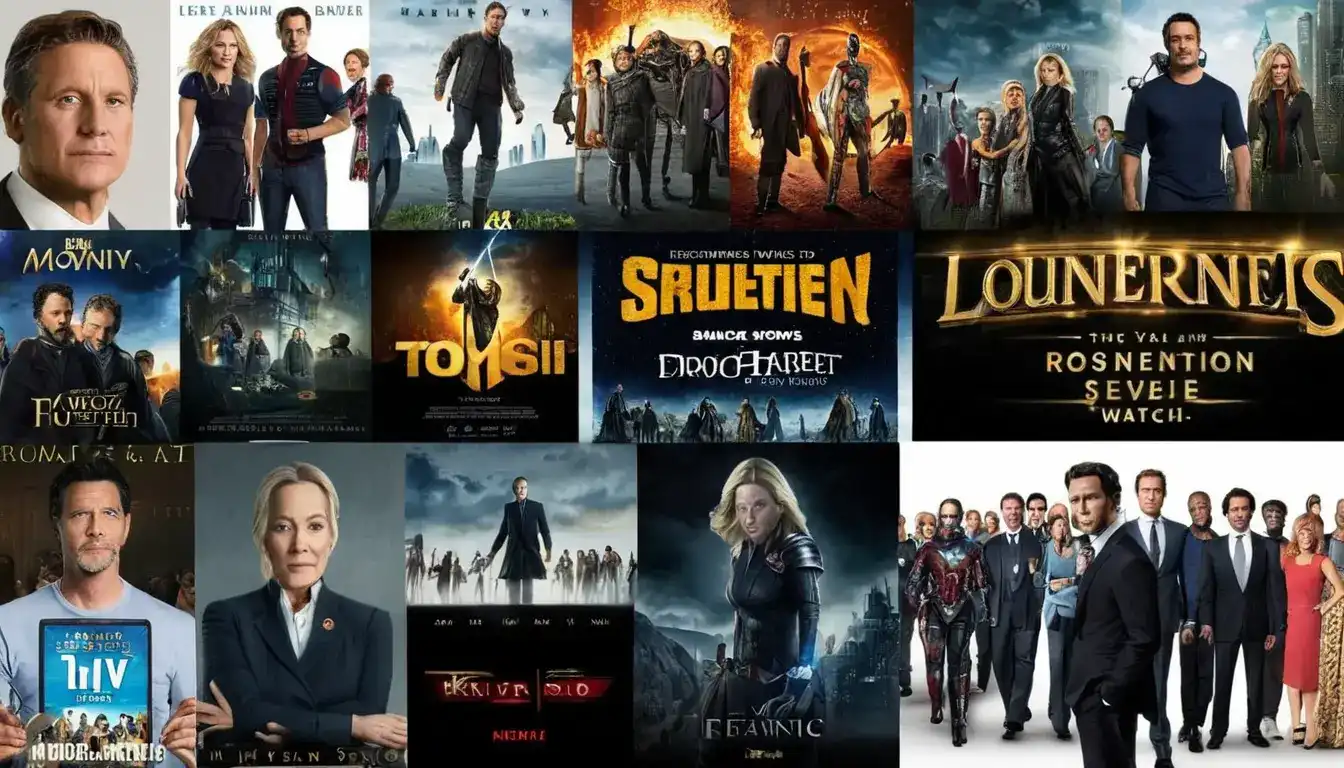
August 4, 2024
Recommended Movies and TV Series to Watch This Yearlist of recommended movies and TV series to watch this year. The movies include "Dune: Part Two," "Spider-Man: No Way Home," "The French Dispatch," "No Time to Die," and "Encanto." The TV series include "Stranger Things: Season 4," "The Mandalorian: Season 3," "The Witcher: Season 2," "Ted Lasso: Season 3," and "Loki: Season 2." Each entry includes reasons to watch, such as stellar cast, visually stunning cinematography, engaging plot, and character development.
Emily Willis

August 4, 2024
Profiles of Famous Artists Who Inspire the Younger Generationthe inspirational aspects of famous artists such as Vincent van Gogh, Frida Kahlo, Pablo Picasso, Banksy, Yayoi Kusama, Jean-Michel Basquiat, Georgia O'Keeffe, Andy Warhol, Kehinde Wiley, and Ai Weiwei. It highlights their perseverance, innovation, authenticity, social commentary, mental health advocacy, and representation, among other qualities, and how these aspects continue to inspire young artists to pursue their creative dreams.
Emily Willis
Health
View AllRegular physical activity is crucial for maintaining long-term health and well-being. It has numerous benefits, including improving cardiovascular health, aiding in weight management, enhancing mental health, strengthening bones, boosting immune function, and promoting longevity.
Emily Willis
sleep for physical and mental well-being, discussing the benefits of sleep such as physical restoration, brain function, emotional regulation, concentration, and reduced risk of chronic diseases. It explains the different stages of the sleep cycle and provides guidelines for how much sleep individuals of different ages need.
Emily Willis
A healthy lifestyle is crucial for enhancing overall quality of life in today's fast-paced world. It involves habits such as a nutritious diet, regular exercise, adequate sleep, stress management, and avoiding harmful substances. Benefits include improved physical health, enhanced mental well-being, increased energy levels, better sleep quality, and longevity. Implementing healthy habits gradually, staying consistent, seeking support, and monitoring progress are key steps towards a healthier lifestyle. Prioritizing a healthy lifestyle is not just about adding years to life but about adding life to years, leading to a more fulfilling and vibrant life.
Emily Willis
Trending 🔥
View All
1
2
3
4
5
6
7
8
10
Lifestyle


Sports
View AllAugust 5, 2024
Sports for Social Good: Promoting Diversity, Inclusion, and Community Engagement
Read MoreTechnology
View All
August 4, 2024
Latest Trends in Mobile Application Development
latest trends in mobile application development for 2024. These trends include the integration of 5G technology, artificial intelligence and machine learning, Internet of Things (IoT), augmented reality (AR) and virtual reality (VR), cross-platform development, mobile wallets and payment gateways, progressive web apps (PWAs), enhanced app security, voice search and integration, and sustainability and green mobile apps.

August 5, 2024
How AI is Used to Solve Problems in Various Industries
Artificial Intelligence (AI) is reshaping industries across the globe, from healthcare to finance, by solving complex problems, increasing efficiency, and driving innovation. In healthcare, AI is saving lives through drug discovery, disease diagnosis, personalized medicine, and virtual health assistants.
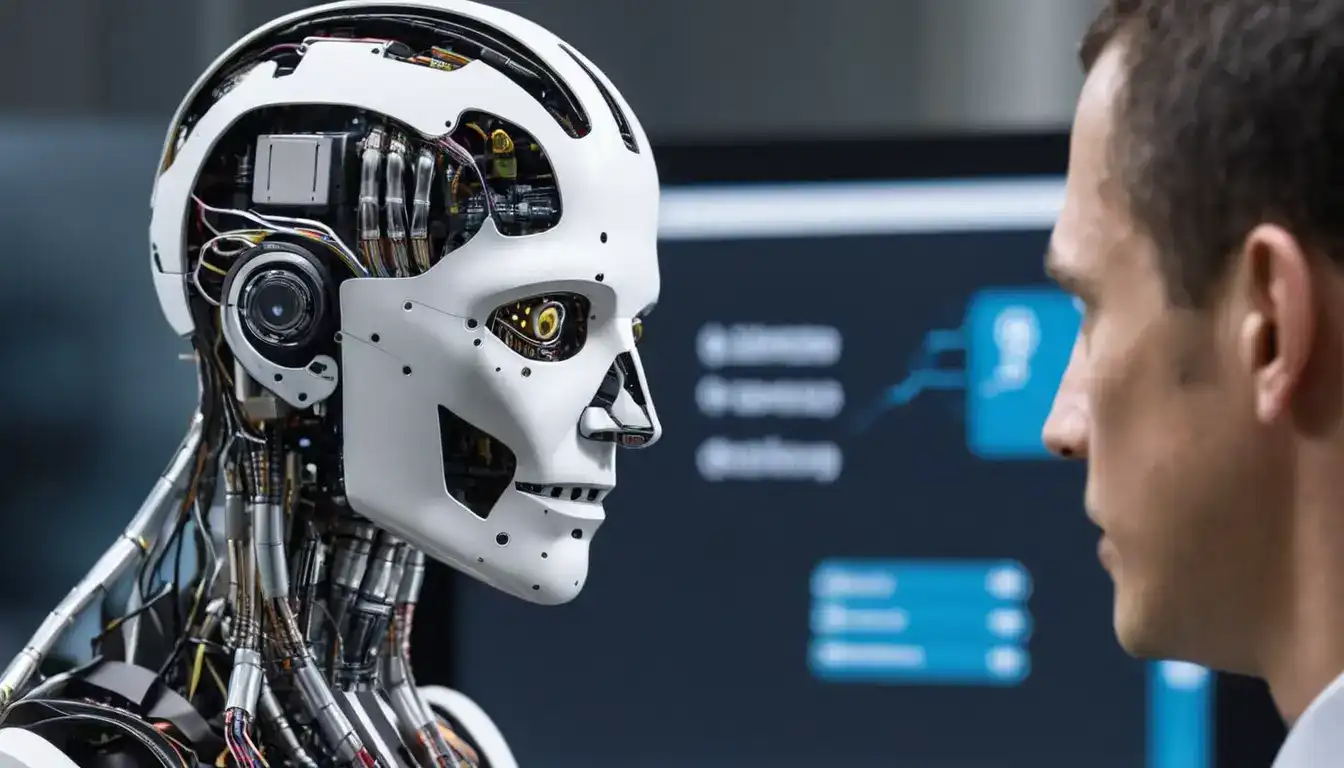
August 4, 2024
Impact of Artificial Intelligence on Business Operations: Efficiency and Innovation
Artificial Intelligence (AI) is transforming modern business operations by increasing efficiency, driving innovation, and driving strategic decision-making. AI automates routine tasks, improves data analysis, and enables personalized customer experiences.

August 5, 2024
Benefits of Using Cloud Computing for Your Business
Cloud computing has revolutionized business operations by offering cost savings, scalability, improved collaboration, enhanced security, and robust disaster recovery. It allows businesses to access services over the internet, reducing the need for physical infrastructure and providing flexibility.



